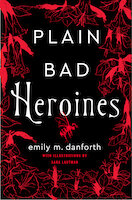Review: The Survivors
/4 stars. Jane Harper is a must-read for me, and she should be for anyone else interested in exquisite mystery thrillers with complex characters involved in complex crimes. In this one, a body of a young woman is found, throwing a small coastal town into chaos. But the core of the story is not a traditional whodunnit - it's also about a storm that ravaged the town over ten years ago, leaving three victims in its wake. I say this adoringly, but: blah blah blah, secrets, clues, family drama, unanswered questions, misplaced blame, etc. etc. etc.
For some reason this one is less of a compelling mystery and more like a ........ feel-bad story. Don't get me wrong, it's a pageturner and I wanted to know the answers, but it felt very grim getting there. Maybe I've forgotten how Harper flavored her other books, and maybe I'm inactively looking for a pick-me-up / grand escape in my reading these days, but it didn't quite hit the spot like I expected it to.
That being said - how wonderfully refreshing to read a book with a young father as the hero, unraveling the mystery with his loving, reliable partner. Also refreshing: a twist I didn't see coming, unexpectedly profound words on grief and guilt, a fantastic ending. Harper really nails those. I also appreciated the pacing and the length of this one, just concise enough to keep me up late thinking "just one more chapter..."
Clever title, BTW! The concept of the Survivors as an art piece is awesome, but obviously the word refers to our characters - each a trauma survivor in his or her own way. I really loved the very human and very heroic failures illustrated in this story, despite the utter darkness seeping out from between the lines. Harper plays with the concept of hero/villain once again, exploring the choices and decisions that lead us down one path or another. Or, maybe, landing us somewhere in-between.
The Survivors on: Amazon | Bookshop.org | Goodreads










